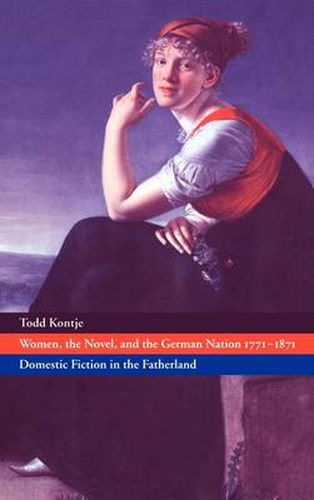Readings Newsletter
Become a Readings Member to make your shopping experience even easier.
Sign in or sign up for free!
You’re not far away from qualifying for FREE standard shipping within Australia
You’ve qualified for FREE standard shipping within Australia
The cart is loading…






Todd Kontje surveys novels by German women over the one-hundred-year period that stretches from the beginnings of a German national literature to the founding of its nation-state. Introducing readers to the lives and works of fourteen women writers of the period, he shows the historical and thematic coherence of a body of fiction by women that has been obscured by traditional literary histories. He explores ways in which novels about traditionally feminine domestic concerns also comment on patriarchal politics in the German fatherland. Finally, he argues that we must view the history of the German novel in the context of both the history of sexuality and the rise of German nationalism, and that novels by German women, often marginalised or trivialised, played a central role in shaping attitudes toward class, gender, and the nation.
$9.00 standard shipping within Australia
FREE standard shipping within Australia for orders over $100.00
Express & International shipping calculated at checkout
Todd Kontje surveys novels by German women over the one-hundred-year period that stretches from the beginnings of a German national literature to the founding of its nation-state. Introducing readers to the lives and works of fourteen women writers of the period, he shows the historical and thematic coherence of a body of fiction by women that has been obscured by traditional literary histories. He explores ways in which novels about traditionally feminine domestic concerns also comment on patriarchal politics in the German fatherland. Finally, he argues that we must view the history of the German novel in the context of both the history of sexuality and the rise of German nationalism, and that novels by German women, often marginalised or trivialised, played a central role in shaping attitudes toward class, gender, and the nation.